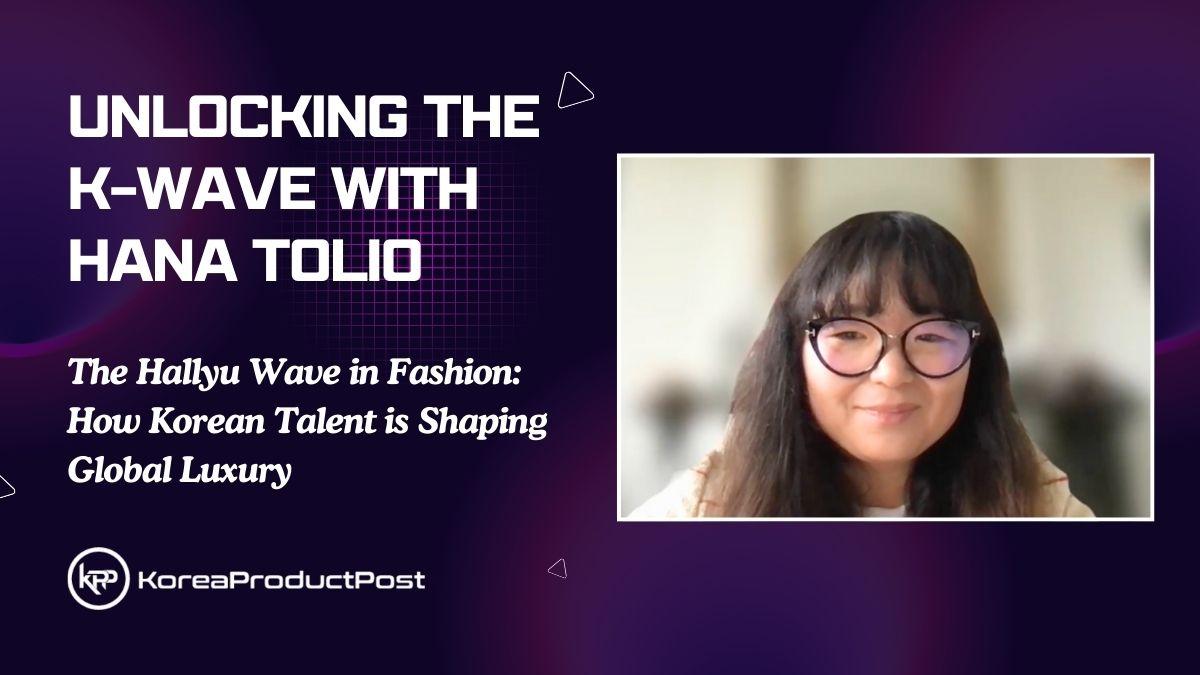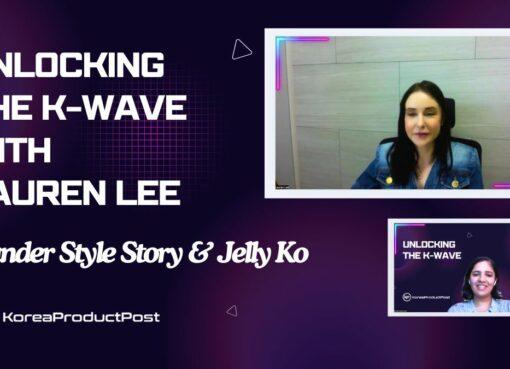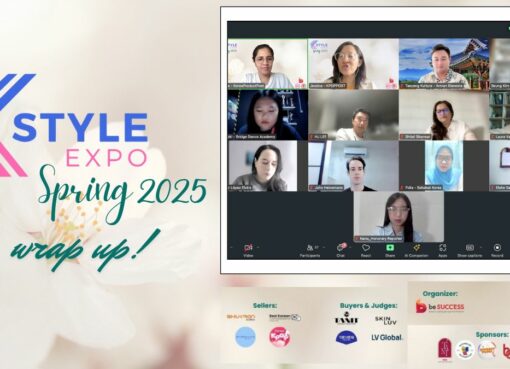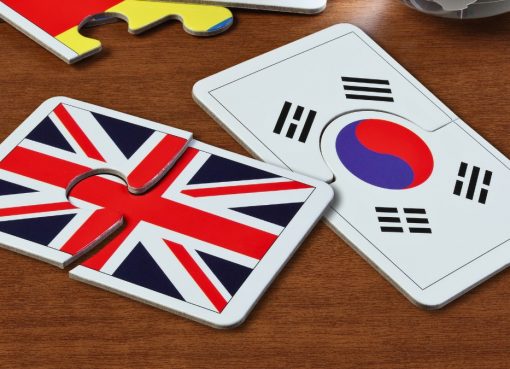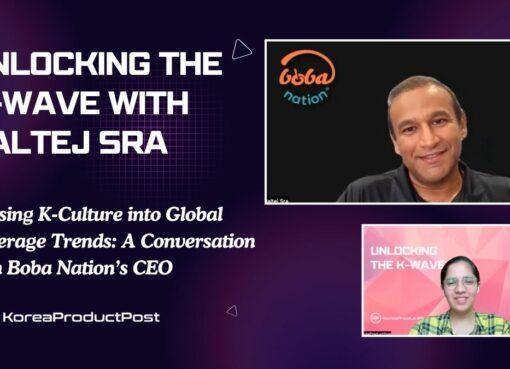How Korean Talent is Shaping Global Luxury Marketing?
This month, I had a chance to connect with Hana TOLIO, a writer for Journal du Luxe, who shared her insights on the intersection of Korean culture and luxury branding. Read on ahead to explore Korea’s cultural impact on fashion, from the Hallyu wave to major endorsements in top fashion houses like Chanel and Louis Vuitton.
Here are some key highlights from the insightful session.
For those who missed the live event, you can watch the full seminar here.
Korean Culture and Luxury Brands
Hana’s insights into Korea’s cultural and economic journey offer a fascinating glimpse into a nation that has risen from adversity to become a global cultural powerhouse. Korea’s story of resilience, especially in the face of events like the 1988 Olympics and the 1997 financial crisis, has shaped its creative and economic landscape. Art and creativity have always played a vital role in Korea’s identity, leading to the creation of national agencies like KOCCA (Korea Creative Content Agency) to promote Korean talents on the global stage. Today, Korean culture is not just thriving domestically but also making waves across continents—from France and Germany to the US and beyond.
Hana’s discussion sheds light on how Korea has masterfully leveraged its cultural assets, combining resilience, creativity, and global appeal. What started with moments like the 1988 Olympics has evolved into a full-blown cultural wave, with Korean talent now at the forefront of global fashion, film, and art. From G-Dragon’s bold fashion statements to actresses subtly promoting luxury through character-driven narratives, Korea’s influence is reshaping how the world views both luxury and culture.
Rise of Korean Talents in Luxury Marketing
Hana discussed the global rise of Korean talents in luxury marketing. This was thanks to the COVID-19 pandemic as it impacted the popularity of Korean dramas and the burgeoning impact of K-pop. People suddenly started discovering K-dramas and were blown away by how unique they were. Even those who were already fans, perhaps more “lo-fi” in their interests, realized that Korean dramas were becoming a household name.
BTS and Blackpink have also been instrumental in pushing Korean talent onto the global luxury scene. BTS, in particular, made waves when they became Louis Vuitton ambassadors, and their global influence has been undeniable. Similarly, Blackpink‘s members, especially Jennie and Lisa, have signed major deals with Chanel and Celine, respectively.
If we look back 20 years, who would have thought that Korean talents would be so highly respected and influential globally? Of course, without groups like Super Junior and Big Bang, BTS and Blackpink might not have gotten to where they are today. What’s fascinating is how the digital landscape helped these Korean talents understand and cater to Western beauty standards as well.
Understanding the Korean Cultural Talent
The luxury fashion world has long relied on celebrity endorsements, but the rise of Korean talents is reshaping this landscape. A recent Chanel campaign with Lily-Rose Depp underperformed, prompting the brand to add K-pop star Jennie to boost engagement. Despite Jennie’s massive global fanbase, her role was puzzlingly minimized, highlighting the importance of brands truly understanding Korean talent and their cultural influence.
This shift reflects a broader trend. Korean stars, from Jennie to BTS, have become indispensable in global luxury marketing, thanks to their loyal fanbases and ability to bridge cultural gaps. The Hallyu wave, which started with key moments like the 1988 Olympics, has propelled Korean culture to the forefront of global fashion. Brands must now engage with these stars in more meaningful ways, recognizing the deep connections they have with their audiences, or risk missing out on the full potential of Korea’s global influence.
Future Outlook
Hana discussed the resilience of Korean culture and its reflection in the luxury industry. She highlighted the unique Korean concept of “Chong,” contrasting celebrity-fan connection with Western practices. Today, Korean talents like Jimin, Jennie, and Jisoo are not just fashion icons; they are global ambassadors for Korean culture, values, and creativity. They embody the spirit of the Millennial and Gen Z generations, who seek authenticity, creativity, and change. Their rise highlights the need for brands to not only recognize but truly understand the nuances of Korean fandoms and culture to successfully tap into this powerful market.
In conclusion, Korean talent is now a central force in luxury fashion’s global expansion. For brands, the challenge is clear: to succeed, they must go beyond surface-level endorsements and dive deeper into the cultural significance and fan dynamics that make these stars so influential. Korea’s influence is not just a trend; it’s a movement reshaping the luxury industry for the future.
Stay tuned to KoreaProductPost for more exclusive insights and stories from the heart of the Korean product industry.
Join us on an exciting journey to explore the vibrant world of Korean lifestyle – from the latest beauty tips to the hottest tech and so much more on Facebook, Twitter, LinkedIn, and Flipboard.



